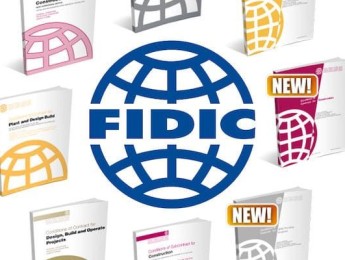Healthcare management is absolutely essential in ensuring the success of any healthcare facility. If a healthcare facility or organisation were to be poorly managed, it would be guaranteed to not meet targets, be lacking in quality, and overall provide sub-par patient care.
For successful management, those involved need to be competent in helping the various departments run smoothly and collaboratively, ensuring information is processed efficiently and securely and that all patients are receiving the highest standard of care. These goals are heavily reliant on management correctly allocating resources and finances.
Furthermore, management should also strongly focus on the employees within the facility. Healthcare is a high-stress environment and can put a heavy mental burden on those involved. They will need opportunities to decompress, either through rewards, arranged activities, or mental health support. In addition to stress reduction, employees should also be granted opportunities to develop their skills to further their capabilities and potentially acquire further accreditation.
Upon completion of this course, participants will be able to:
- Understand the vitality of effective management within a healthcare facility.
- Identify each service and facility within the organisation, as well as their purpose and necessity.
- Recognise the consequences of poor healthcare management in relation to the organisation and the patients.
- Explore the challenges commonly faced within healthcare, and what internal and external factors may influence them.
- Appreciate the history of the healthcare sector and explore how it may evolve in the future.
- Coordinate and balance each department of the facility so that they work in alignment to prevent a reduction in productivity and quality.
This course is designed for anyone within healthcare management who wishes to develop their knowledge and skills. It would be most beneficial for:
- Operations Managers
- Hospital Directors
- Clinical Laboratory Managers
- Finance Managers
- Risk Analysts
- Healthcare Facilities Managers
- Pharmaceutical Directors
- HR Personnel
This course uses a variety of adult learning styles to aid full understanding and comprehension. Participants will review real-world documents from established healthcare organisations relating to risks and resources to highlight key factors that have led to success.
They will be able to participate in a variety of learning exercises and methods, including seminars, video materials, group discussions, and group activities. This assortment of learning exercises will better promote learning and knowledge development, and the participants are guaranteed to develop a full understanding of the taught content and any related skills.
Day 5 of each course is reserved for a Q&A session, which may occur off-site. For 10-day courses, this also applies to day 10
Section 1: Introduction to Healthcare Management
- Explaining the necessity of healthcare management.
- What services are typically offered within different types of healthcare facilities?
- Identifying the various positions within healthcare, their roles, responsibilities, and typical competencies.
- Acknowledging the potential consequences of poor healthcare management for patients, the organisation, and the sector overall.
- Comprehending and enacting the professional code of conduct and ethics.
Section 2: Resource Allocation
- Gathering and analysing data surrounding the performance and demand of different services and facilities.
- Collaborating with the department leads to prioritise necessary resources.
- Utilising methods of research and innovation to maximise the use of resources better.
- Ideal methods of reducing costs without sacrificing productivity or quality.
- Acquiring various sources of finance and equipment from external factors.
Section 3: Services
- Analysing provided services and their overall performance.
- Exploring other organisations within the sector, their success in providing different services, and how to work collaboratively to improve their performance.
- Evaluating the history of the service and how it has evolved, and whether it has the potential to evolve further.
- Focusing on the strategy, direction, and delivery of care.
Section 4: Risk Management
- Defining what ‘risk’ is within a healthcare environment.
- Conducting regular risk assessments to identify all probable environmental risks and hazards.
- Utilising risk data to implement risk management plans that provides preventative measures and corrective actions for all risks.
- Encouraging an environment that is risk-conscious and aware.
Section 5: Leadership and Team Management
- Managing quality through performance monitoring.
- Engaging with employees on a personal level to build positive relationships.
- Providing opportunities for coaching and training to develop skills and acquire additional certifications.
- Focusing on evidence-based decision-making.
- Acknowledging the mental burden of healthcare roles and offering rewards, incentives and stress reduction activities.
Upon successful completion of this training course, delegates will be awarded a Holistique Training Certificate of Completion. For those who attend and complete the online training course, a Holistique Training e-Certificate will be provided.
Holistique Training Certificates are accredited by the British Assessment Council (BAC) and The CPD Certification Service (CPD), and are certified under ISO 9001, ISO 21001, and ISO 29993 standards.
CPD credits for this course are granted by our Certificates and will be reflected on the Holistique Training Certificate of Completion. In accordance with the standards of The CPD Certification Service, one CPD credit is awarded per hour of course attendance. A maximum of 50 CPD credits can be claimed for any single course we currently offer.
- Course Code IND05-122
- Course Format Classroom, Online,
- Duration 5 days














